british rule
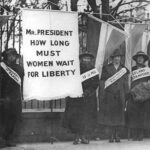
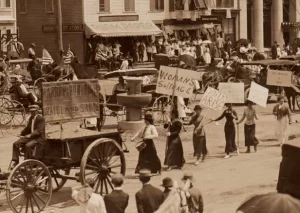 For many years, in the United States, women were not allowed to vote. Of course, many women didn’t have much of a formal education either. They might have gone to the sixth grade or something, but then it was thought that they should be at home with their mothers, learning to run a household, cook, and raise children. It was thought that political matters should be left to the men, “who understood these things.” I don’t believe that the men were being intentionally chauvinistic, but it was simply the way things were in that day and age.
For many years, in the United States, women were not allowed to vote. Of course, many women didn’t have much of a formal education either. They might have gone to the sixth grade or something, but then it was thought that they should be at home with their mothers, learning to run a household, cook, and raise children. It was thought that political matters should be left to the men, “who understood these things.” I don’t believe that the men were being intentionally chauvinistic, but it was simply the way things were in that day and age.
Lydia Taft became the first legal woman voter in colonial America in 1756. Under British rule in the Massachusetts Colony, in the New England town meeting in Uxbridge, Massachusetts, Taft voted on at least three occasions. The British law at the time stated that “unmarried white women who owned property could vote in New Jersey.” The law was in place from 1776 to 1807. After 1807, things pretty much went back to the “only men can possibly understand politics, sweetie” mentality, and women couldn’t vote until 1869, when Wyoming granted women the right to vote. Utah followed in 1870. Prior to the 19th Amendment, individual states made their own decisions on women’s suffrage, according to Time magazine. In fact, most states allowed women to vote in at least some elections prior to 1920, with only eight of 48 states completely disenfranchising women. Still, even when they weren’t allowed to vote, nothing prohibited women from running for office in many cases…and they often did. Thousands of women ran for office prior to 1920 and many of them won and served long before they were legally allowed to vote. 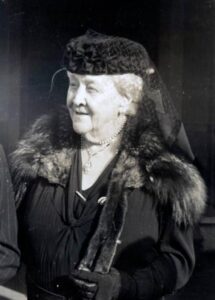
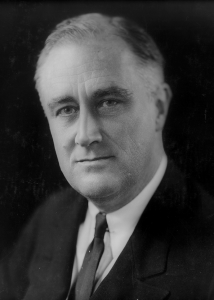
As far as presidents go, it hit me that while many wives, mothers, sisters, and daughters had a husband, son, brother, or father who was president, the first 31 of those presidents were elected without the votes of the women in their families. In fact, Franklin D Roosevelt’s mother was the first mom who got to cast a vote for her son as president. How strange that must have felt. I’m sure that anyone who finds themselves related to the President of the United States, might find life a little bit surreal, but that first ability to vote for that family member…wow!! Of course, the whole idea of being able to legally vote after fighting for the privilege so hard must have been surreal in itself…whether you know the candidate personally or not.
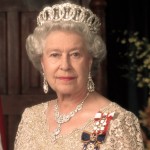
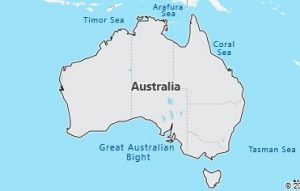 As nations grow in size, population, or power, many no longer want to be under the rule of another nation, even one that helped get them to where they are, and even one that has owned their land for years. It is something we, as Americans can’t really fathom, considering that we fought the Revolutionary War to leave British rule.
As nations grow in size, population, or power, many no longer want to be under the rule of another nation, even one that helped get them to where they are, and even one that has owned their land for years. It is something we, as Americans can’t really fathom, considering that we fought the Revolutionary War to leave British rule.
The decision was very different for Australia on November 6, 1999. Treasurer Wayne Swan and senior opposition figure Malcolm Turnbull, who once was Australia’s Republican Movement president, came together in the capital Canberra on the prior Monday to launch a book of essays called ‘Project Republic: Plans and Arguments for a New Australia’. Mr Turnbull, who sits on the front bench for the conservative opposition, described this latest push as “simply, purely patriotic” and called for an ‘interactive plebiscite’ to use cyberspace to better inform Australians of the issues surrounding constitutional change.
As it was, many feared the change, and the work and uncertainty that could accompany it. Still others, like being a part of the monarchy. “Many argue that the sexy celebrity status of William and Kate will sweep all before it and their star quality will revive the monarchy in Australia. I don’t think so,” Turnbull writes. “They will certainly be far more interesting and telegenic than Charles and Camilla – but I am not convinced that will translate into enhanced support for William (or indeed Charles) remaining our head of state.” His opinions aside, the people of Australia voted and decided that they just weren’t ready, and quite possibly they never would be ready to walk away from the British Monarchy. That actually happened in America too, because while 
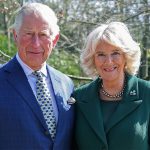 the overwhelming number of citizens wanted to go for independence, there were those who did not.
the overwhelming number of citizens wanted to go for independence, there were those who did not.
In Australia, it didn’t appear that the situation would have come to war, as it had in America, but one never really knows what can trigger a war of this type. I guess that in the case of Australia, if they are tired of the Queens rule, they have chosen to wait and see what the future ruling parties might bring. If they don’t like the outcome, they could always choose to break away at a later date.

